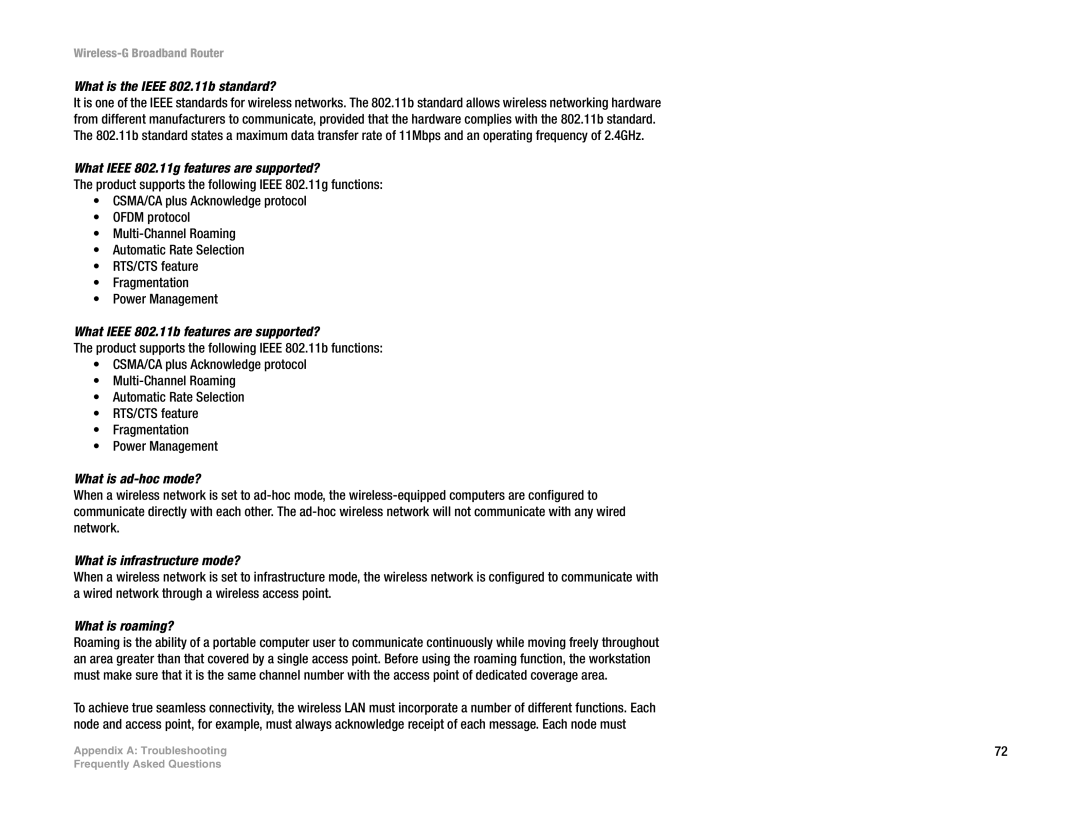Wireless-G Broadband Router
What is the IEEE 802.11b standard?
It is one of the IEEE standards for wireless networks. The 802.11b standard allows wireless networking hardware from different manufacturers to communicate, provided that the hardware complies with the 802.11b standard. The 802.11b standard states a maximum data transfer rate of 11Mbps and an operating frequency of 2.4GHz.
What IEEE 802.11g features are supported?
The product supports the following IEEE 802.11g functions:
•CSMA/CA plus Acknowledge protocol
•OFDM protocol
•
•Automatic Rate Selection
•RTS/CTS feature
•Fragmentation
•Power Management
What IEEE 802.11b features are supported?
The product supports the following IEEE 802.11b functions:
•CSMA/CA plus Acknowledge protocol
•
•Automatic Rate Selection
•RTS/CTS feature
•Fragmentation
•Power Management
What is ad-hoc mode?
When a wireless network is set to
What is infrastructure mode?
When a wireless network is set to infrastructure mode, the wireless network is configured to communicate with a wired network through a wireless access point.
What is roaming?
Roaming is the ability of a portable computer user to communicate continuously while moving freely throughout an area greater than that covered by a single access point. Before using the roaming function, the workstation must make sure that it is the same channel number with the access point of dedicated coverage area.
To achieve true seamless connectivity, the wireless LAN must incorporate a number of different functions. Each node and access point, for example, must always acknowledge receipt of each message. Each node must
Appendix A: Troubleshooting | 72 |
Frequently Asked Questions
